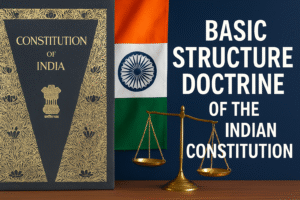Introduction
The Union Public Service Commission (UPSC) Civil Services Examination (CSE) is regarded as one of the most competitive and prestigious exams in India. Every year, lakhs of aspirants compete for a handful of coveted positions in the Indian Administrative Service (IAS), Indian Police Service (IPS), Indian Foreign Service (IFS) and various other Central Government services. The UPSC exam not only tests a candidate’s knowledge but also evaluates their analytical skills, decision-making ability, and overall personality, making it one of the toughest examinations globally.
The journey to becoming a civil servant requires meticulous planning and a deep understanding of the examination’s structure and syllabus. The UPSC syllabus is vast and diverse, encompassing subjects ranging from history and geography to ethics and current affairs. However, this challenge is not impossible if approached with a clear strategy and focus on key topics.
Success in the UPSC exam demands more than just hard work; it requires smart preparation, which begins with mastering the syllabus. The syllabus serves as a roadmap for aspirants, helping them prioritize their study plans and focus on areas of significance. In this blog, we provide an in-depth breakdown of the UPSC syllabus for all three stages of the examination-Prelims, Mains, and Interview. Whether you are a beginner or a seasoned aspirant, understanding the syllabus is the first step towards acing the UPSC CSE.
Overview of the UPSC Civil Services Examination
The UPSC CSE is conducted in three stages:
- Preliminary Examination (Prelims) – Objective type.
- Main Examination (Mains) – Descriptive type.
- Personality Test (Interview) – Face-to-face interaction.
Each stage tests different aspects of a candidate’s knowledge, analytical ability, and personality.
- Preliminary Examination
The Prelims consist of two objective-type papers:
- General Studies Paper I (GS I)
- General Studies Paper II (CSAT)
General Studies Paper I (GS I) Syllabus
This paper assesses a candidate’s grasp of current affairs and general knowledge. It carries 200 marks, with a time limit of two hours. The key areas are:
- Current Events: National and international events of significance.
- History of India and Indian National Movement: Ancient, medieval, and modern history with a focus on the freedom struggle.
- Indian and World Geography: Physical, social, and economic geography of India and the world.
- Indian Polity and Governance: Constitution, public policy, political system, Panchayati Raj, and rights issues.
- Economic and Social Development: Sustainable development, poverty, inclusion, and demographics.
- Environmental Ecology and Biodiversity: Climate change, environmental conservation, and general science.
Important Topics to Focus On for GS I
- Indian National Movement and freedom fighters.
- World geography, including important physical features and climatic patterns.
- Key provisions of the Indian Constitution, such as fundamental rights and duties.
- Current affairs, especially government schemes, international relations, and environmental issues.
General Studies Paper II (CSAT) Syllabus
The CSAT evaluates logical reasoning, comprehension, and quantitative aptitude. It is qualifying in nature, requiring 33% marks to pass.
Key Focus Areas
- Comprehension: Practice reading comprehension from diverse topics.
- Logical Reasoning and Analytical Ability: Solve puzzles, syllogisms, and data sufficiency problems.
- Numerical Ability: Focus on percentages, ratios, and basic arithmetic.
- Decision-Making and Problem-Solving: Review past years’ CSAT papers for patterns.
- Main Examination
The Mains is the most critical stage, consisting of nine descriptive papers:
- Two qualifying papers: English and any Indian language.
- Seven papers that count towards merit: Essay, four General Studies papers, and two optional papers.
Qualifying Papers
- Paper A: Any Indian language.
- Paper B: English.
These are of 300 marks each and require basic proficiency to qualify.
Merit-Based Papers
Essay (250 Marks)
The essay paper demands clarity of thought, analytical ability, and cohesive writing.
Important Areas to Focus On:
- Topics on social issues, economy, and governance.
- Philosophical and abstract themes.
General Studies Papers I-IV
- GS Paper I:
- Indian Heritage and Culture.
- History and Geography of the World and Society.
- Salient features of Indian society and globalisation.
Important Topics:
-
- Art and architecture of ancient India.
- Modern history and world wars.
- Social issues like gender equality and communal harmony.
- GS Paper II:
- Governance, Constitution, Polity, Social Justice, and International Relations.
Important Topics:
-
- Functions of the legislature, executive, and judiciary.
- India’s foreign policy and international organizations like the UN and WTO.
- GS Paper III:
- Technology, Economic Development, Biodiversity, Environment, Security, and Disaster Management.
Important Topics:
-
- Recent advancements in science and technology.
- India’s economic planning and agricultural policies.
- Internal security challenges like cyber threats.
- GS Paper IV:
- Ethics, Integrity, and Aptitude.
Important Topics:
-
- Case studies on ethical dilemmas.
- Role of civil servants in upholding integrity and accountability.
Optional Papers
Candidates choose one subject from a list of disciplines, with two papers of 250 marks each.
Popular Choices: Public Administration, Geography, Sociology, History, and Anthropology.
- Personality Test (Interview)
The interview tests a candidate’s personality, decision-making ability, and suitability for public service. Key focus areas include:
- General awareness of current affairs.
- Communication skills and clarity of thought.
- Integrity and problem-solving abilities.
Preparation Strategy for Important Topics
- Master the Syllabus: Keep a copy of the syllabus handy and align your preparation accordingly.
- Current Affairs: Regularly follow newspapers like The Hindu and Indian Express, along with magazines like Yojana and Kurukshetra.
- NCERT Books: Build strong foundational knowledge from NCERT books.
- Practice Answer Writing: For the Mains, practice writing structured answers.
- Mock Tests: Regularly attempt Prelims and Mains mock tests to improve time management and accuracy.
- Focus on Keywords: Memorize and use key terms like sustainable development, inclusive growth, and constitutional morality in your answers.
Common Mistakes to Avoid
- Neglecting the CSAT paper.
- Overemphasizing certain subjects while ignoring others.
- Writing long, unstructured answers in Mains.
- Lack of revision and practice for the interview stage.
Conclusion
Cracking the UPSC Civil Services Examination is a journey of perseverance, dedication, and strategic preparation. Understanding the detailed syllabus and focusing on the most relevant topics is the cornerstone of success in this competitive exam. By systematically studying each section, keeping track of current affairs, and practicing answer writing, aspirants can build a solid foundation for the Prelims, Mains and Interview Stage.
It is important to remember that the UPSC exam is not just about acquiring knowledge; it is about applying that knowledge with a balanced perspective, critical thinking, and a sense of responsibility towards public service. Equally essential is maintaining consistency, discipline, and a positive attitude throughout the preparation process.
While the path to becoming a civil servant may seem challenging, it is also immensely rewarding. Beyond securing a prestigious career, it offers the opportunity to make a tangible impact on society and contribute to nation-building. With the right mindset, well-planned strategies, and a deep commitment to your goal, you can turn this ambitious dream into reality.
Keep learning, stay focused, and believe in your ability to succeed—your hard work today will lay the foundation for a brighter tomorrow.








